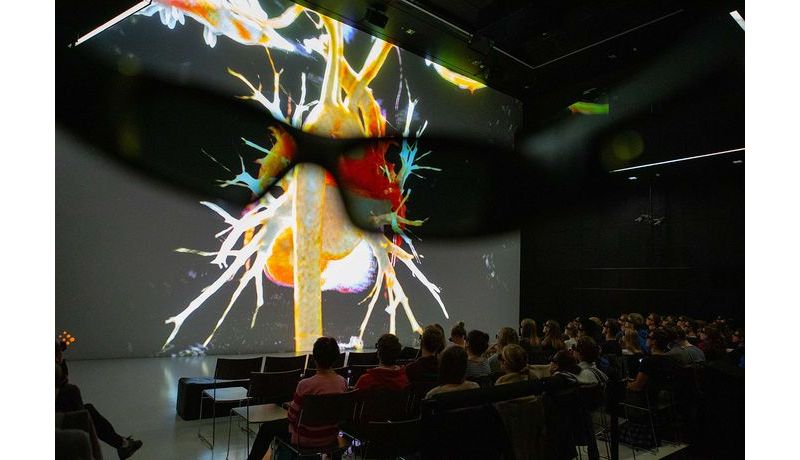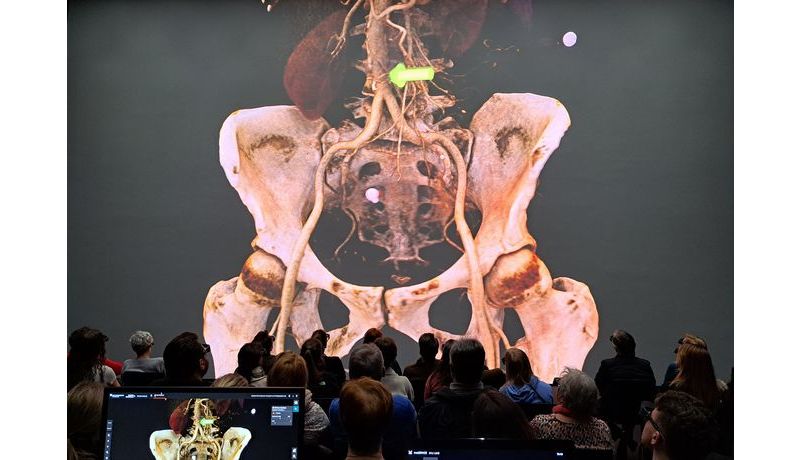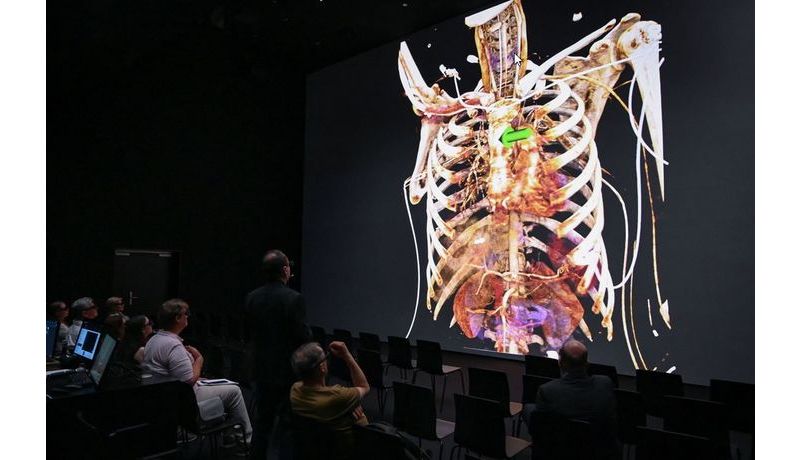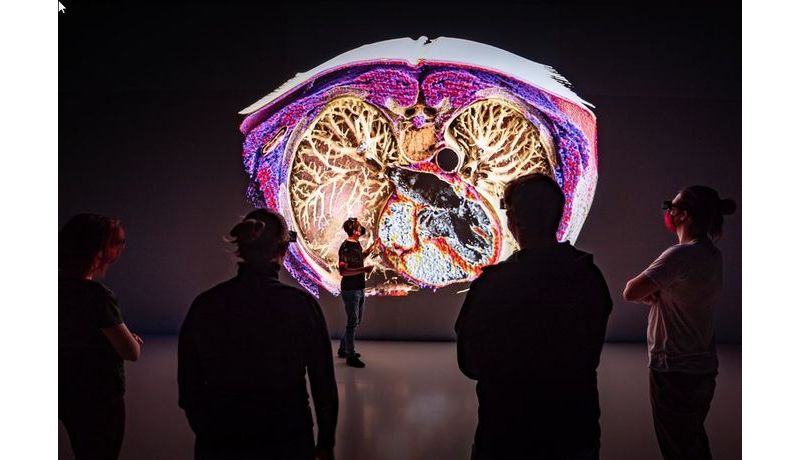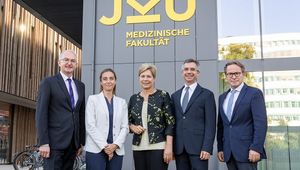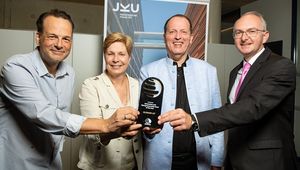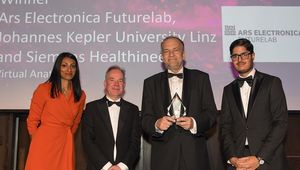Virtual Anatomy was presented with the Upper Austrian State Award for Innovation in the category of "Business Model Innovations".
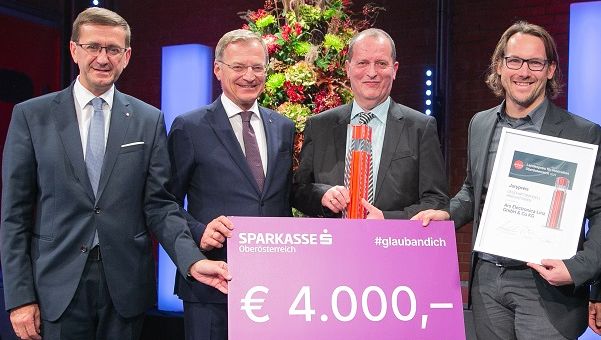
The human body in 3D and 8K, larger than life and rendered down to the smallest detail: After having received several international awards, the globally unique Cinematic Virtual Anatomy application by Ars Electronica Futurelab, Siemens Healthineers, and Johannes Kepler University Linz has been presented with the Upper Austrian State Award for Innovation.
By using Cinematic Virtual Anatomy, the subject area of anatomy can be taught in a completely new and unique way, using stereoscopic 3D projection and 4K to 8K resolution onto a projection surface of up to 16×9 meters. Instructors and students are able to immerse themselves in larger-than-life, photorealistic 3D images of data collected from real patients. The images are impressive clear from all angles and the instructor can seamlessly zoom in. By wearing 3D glasses, organs and blood vessels, muscles and bones as well as tumors and injuries can be seen as three-dimensional objects of impressive clarity and magnified down to specific details.
The program is based on an idea by Prof. Franz Fellner (head of Virtual Morphology at the JKU’s Faculty of Medicine), who has been teaching virtual anatomy at the JKU medSPACE with the help of Cinematic Virtual Anatomy since 2021. The Ars Electronica Futurelab is responsible for both creating the JKU medSPACE and adapting the high-resolution, stereoscopic 3D software.
All of the data displayed in Cinematic Virtual Anatomy originates from real patients. In a matter of minutes, the fully anonymized data can be transferred from the hospital to the futuristic lecture hall to be used directly as part of a lecture, or saved for a later presentation. Students learn based on real data instead of abstract models, thereby acquiring a better understanding of how the human body works.
According to a survey conducted by Prof. Fellner, the new Cinematic Virtual Anatomy courses at the JKU’s medSPACE are a testament to the concept’s success as thanks to the new courses, the students' understanding of complex anatomical structures in the body has grown in leaps and bounds. Future physicians are impressed and according to the JKU med students, their "absolute favorite course during the preclinical phase" is the one that takes their understanding of complex bodily structures to a "whole new level".







